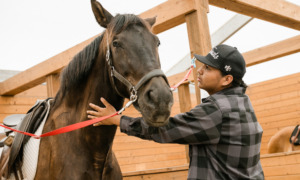U.S. Government Accountability Office
This U.S. Government Accountability Office study looked at state laws governing sex offenders’ employment in child-care facilities and examined 10 cases where sex offenders were employed or present at such facilities. More than 1.3 million U.S. children are regularly cared for by child-care providers each week, including in-home workers, home-based centers or commercial child-care center.
To choose the 10 sex offenders whose case studies are presented, GAO reviewed open-source information from 2000 to 2010 to find cases, and then selected 10 from eight states and the District of Columbia. The GAO also examined employment databases for the years 2007 and 2009 from 20 states and the District of Columbia in the National Sex Offender Registry. Once the cases were selected, the GAO reviewed each case’s court documents and interviewed law enforcement personnel.
Of the 10 offenders researched, seven targeted children in their offenses and three used their access to child-care facilities to repeat sexual offenses. At least seven of the 10 were given permission to reside in the facilities by family or acquaintances who knew of the offender’s past history. In two of the cases, the employers hired previous sex offenders unknowingly, because they failed to complete background checks. Four of the child-care facilities, two licensed and two un-licensed, provided their employees, the offenders, with federal funds.
The GAO found that federal laws regulate the employment of sexual offenders at child-care facilities through techniques such as background checks. The National Child Protection Law of 1993, for example, requires the Department of Justice to conduct a criminal-history check at the request of child -care facilities or other youth-serving organizations. But, the study found, the background check is not required unless the facility is federally owned or operated.
Many states have laws that prohibit sex offenders from working with or near children. Fifteen states impose restrictions that prohibit registered sex offenders from entering or being within a certain distance of child-care facilities. Twenty-two states as well as the District of Columbia prohibit sex offenders from serving as an owner, operator, employee or volunteer at a child-care facility. Nine states prohibit offenders whose victims were minors from entering facilities. Four states prohibit sex offenders from residing at a facility that provides child care services. All 50 states require employers to receive criminal history checks but their requirements for licensing vary.
Free, 30 pages. To read the full report, click here.


























